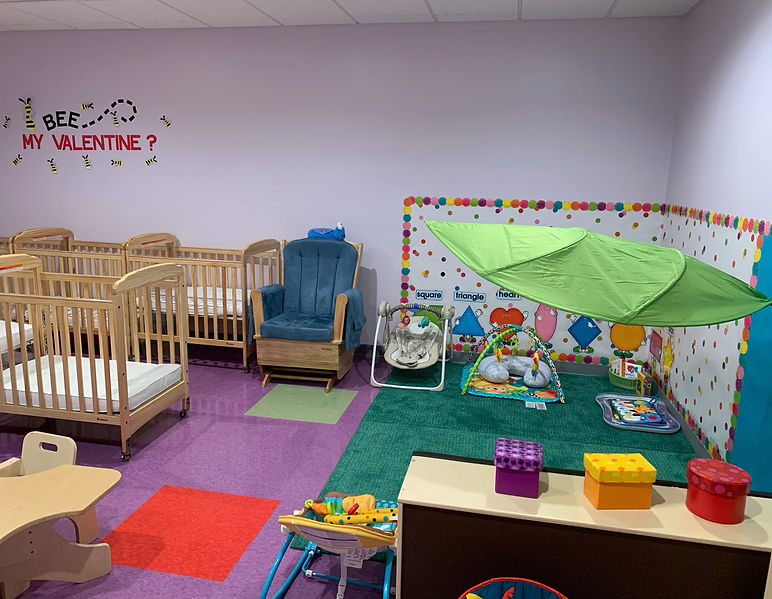Infant Program Benefits: Supporting Early Growth And Brain Development Effectively

The first years of life are preceded by accelerated physical, emotional, and brain development. This phase defines the premise of future acquisition, socialization, and development of a child. Parents and other guardians usually seek the most effective methods that can help children succeed in this sensitive stage. An Infant Program is one of the most efficient methods of providing structure and support.
Key Ways Infant Programs Nurture Development
The list below outlines the reasons why the following programs are essential and how they lead to positive outcomes for children.
Promoting Cognitive Growth
As soon as a baby is born, they start learning according to what surrounds them. Stimulating activities like reading, music, and sensory play initiate neurological connections necessary to advance the development of the brain. An Infant Program offers guided experiences that increase memory, focus, and adaptation ability at a gradual rate.
In their everyday experience, infants acquire the skills to discern patterns, respond to cues, and look at situations around them with interest. These practices help children establish a solid foundation in language development, understanding, and subsequent school achievement.
Building Emotional Security
The active relation between the infant and the world is surrounded by trust. Routine activities, sensitive caregivers, and secure surroundings make babies feel safe. An Infant Program provides infants with a comfortable environment in which their needs are addressed with quality care and attention.
This sense of having the capacity to personalize allows their children to be themselves, bond, and be strong. As time passes, they discover how to self-soothe, recognize feelings, and relate effectively with other people, which is crucial in lifetime social development.
Strengthening Physical Development
The first years of motor skills develop very quickly, which forms the basis of independence. An effective Infant Program leads to movement that is fostered by tummy time, crawling, and age-related play. These exercises are helpful to build up muscles, coordination, and balance.
When the babies start testing their motions, they become confident in their powers. The favourable environments in which safe exploration leads to growth also enable healthy styles that help to promote active lifestyles in the later years of childhood.
Encouraging Social Skills
Communication with peers has a significant impact on the development of conduct and collaboration. An Infant Program gives the children a chance to watch, imitate, and interact with other people in a meaningful manner. It is this exposure that leads to the enhancement of sharing, turn-taking, and sympathy.
Infants begin to realize the importance of relationships and cooperation through play, supervision, and group work. These initial interactions cultivate the skills they will require in future learning environments, once they can collaborate and communicate effectively.
Enhancing Language Development
The process of acquiring the language starts way before children utter their first word. The regular exposure to dialogue, music, and narratives in an Infant Program hastens the acquisition of vocabulary and understanding. Those looking after the baby imitate language patterns used by the baby, which they learns and repeat later on.
Encouragement and the use of repetition enable infants to sample sounds and, in due course, create words. Such foundations also allow them to read, write, and communicate effectively, all of which are crucial in their academic success in the long run.
Supporting Healthy Routines
Every day, an order is necessary to prevent development and sustenance. An Infant Program focuses on regular times to eat, sleep, and play. Those habits provide assurance, enabling a baby to determine their desires, reduce stress, and establish balance.
The more children adjust to the structured days, the more they are ready to make the transition. Regular scheduling also promotes healthy sleeping and eating habits, including body and brain development.
Conclusion
The early childhood years are an opportunity period to shape the way children develop, learn, and interrelate. It is true that, without a carefully designed Infant Program, babies at this critical period lack the constant care, healthy activities, and gentle guidance that are essential. Infants are taught the foundations of cognitive ability, emotional stability, and positive social relationships via systematic experiences.
FAQ
1. What is an Infant Program?
An Infant Program is a structured early childhood program designed to support a baby’s cognitive, emotional, physical, and social development during the first years of life.
2. How do Infant Programs promote brain development?
They use activities like reading, music, and sensory play to build neurological connections that enhance memory, focus, and adaptability in infants.
3. Can Infant Programs help with emotional security?
Yes. Caring routines, attentive caregivers, and safe environments in Infant Programs create trust and help infants develop self-soothing and social-emotional skills.
4. How do Infant Programs support physical growth?
They encourage tummy time, crawling, and age-appropriate play to strengthen muscles, coordination, balance, and confidence in movement.
5. Do Infant Programs improve social skills?
Yes. Infants interact with peers through play and group activities, learning turn-taking, empathy, and cooperation early on.




